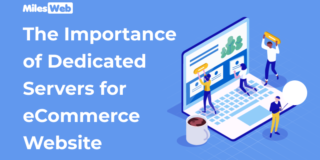Nils Andersson Wimby, Agency Director at Isobar Sweden, makes the case for innovation in an age of optimization.
The great advertising and creativity guru Rory Sutherland once questioned why ”creative peoples’ ideas are always audited by structured people, but structured peoples’ ideas are never audited by creatives”.
I think that is something that really resonates in this day and age. The times we live in are categorized as the digital age, the internet age, the fourth or fifth industrial revolution (depending on who you speak to). I think a more apt description would be “the age of optimization”.
The age of optimization
When everything becomes digital, everything in life can be expressed as a digit. And when everything is a digit, it is ever so tempting to start analyzing and comparing these digits. Using them to optimize.
This development limits the human mind. Instead of thinking freely about testing new things, experimenting, getting bold and crazy, we tend to just keep doing more of the same, only quicker and more efficiently. The development is beautifully illustrated in Orlando Woods’ book “Lemon”, exemplifying this development in everything from historical era comparisons (the boring late-Roman empire vs the creatively driven mid-Roman one) to the development of ever more lacklustre tv ads in the UK.
Of course, data is not a bad thing in itself. But there is a problem when data sets the rules for the entire business, rather than just being a piece of information that may or may not guide a decision. That problem is even bigger if you are looking at the wrong data, data that is not really crucial for you as a business. This phenomenon of “vanity metrics” is a cornerstone of the research of Les Binet & Peter Field, showcasing how brands over the past years so single-mindedly made social media engagement, page views and conversion rates their priorities, they lost track of what actually created value.
Enjoyable exceptions
In this optimized world, I take great enjoyment in the exceptions. The cases where someone has looked at the data and still done something creative, original, or outright bananas.
A classical example of challenging consumer data is Henry Ford, who has been attributed with the quote “If I had asked my customers what they wanted they would have said a faster horse.”
One especially sad aspect of the era of optimization is when it affects people’s everyday lives. Shitty advertising or lost opportunities in omnichannel marketing are after all quite mundane matters. But optimization creeps into how we work, interact, and live our lives. I particularly love the exception where schools in Sweden (generally a victim to staffing and scheduling optimization) ran an experiment where they went against the trend and over-hired. They just put more staff in each class, with no particular role, and no set goal for that matter, and just looked at what happened. The results included happier and better performing students, more continuity because of less use of temps, and improved economy since they cut out the use of temp pool companies. Positive results out of doing the opposite of classical optimization.
One of the industries most affected by optimization is that of media. Clickbait, sensationalism in journalism, and hesitations around revenue models have caused problems for media as they try to optimize and incrementally improve their businesses. My favorite example of different thinking from this industry (sorry New York Times and The Guardian) is F.E.D.S.
F.E.D.S.’ value proposition is “Finally Every Dimension Of The Streets”. It was started by Antoine Clark in New York in 1998 and regularly profiles well-known American killers, kingpins, and pimps. F.E.D.S., profiled by VICE in 2016, is quarterly, and has been sold in all major US cities, as well as in Taiwan, Singapore, Japan, England, France. A success story in a very niche market.
F.E.D.S. is also interesting because it has no digital footprint. There is no webpage. There is no way to subscribe online. You can buy stand-alone issues through magazine vendors, but that is about it. In a world where everyone is analyzing Google Analytics numbers, exploring digital transformation, and optimizing revenue streams, F.E.D.S. is just ignoring all the standard advice and doing their own thing.
A world with only optimized experiences is just boring
These examples illustrate the difference between optimization and innovation. Between tweaking and testing. And in a world where everyone is optimizing in the same direction, I find that refreshing.
In a structured and streamlined world, the anomalies are, I feel, inspiring.
Because as much as living in a world of constant innovation would be chaotic and inefficient, living in a world with only optimized experiences is just boring.
Innovation Best Practice Guide




